 About Bidding Boxes
About Bidding Boxes
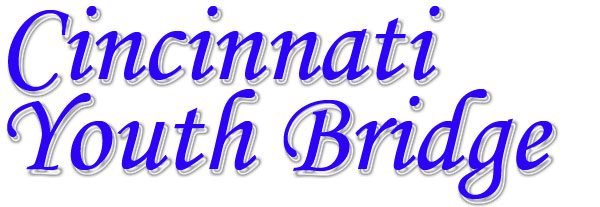
Virtually all duplicate games now use bidding boxes. There are a number of reasons for their use, but the two most important ones are to reduce the overall level of noise in the room and limit the chances of the next table hearing the auction before they play hands.
The boxes are really very easy to use and once you get used to them, it will seem awkward to play without them. It is much easier to visualize the entire auction and saves the time needed to review the auction
 This is a standard bidding box. The
cards for pass, double, redouble, stop and alert are in the front slot. This is a standard bidding box. The
cards for pass, double, redouble, stop and alert are in the front slot.
Cards for every possible contract are in the back slot |
 To make a bid, grasp the bid you want and ALL
of the cards behind your bid. Shown is the grasp of a 2 Diamond
bid. To make a bid, grasp the bid you want and ALL
of the cards behind your bid. Shown is the grasp of a 2 Diamond
bid.
Lift all the cards out of the box and place them on the table in front of you - facing toward your partner. That way they are easier for others at the table to read. |
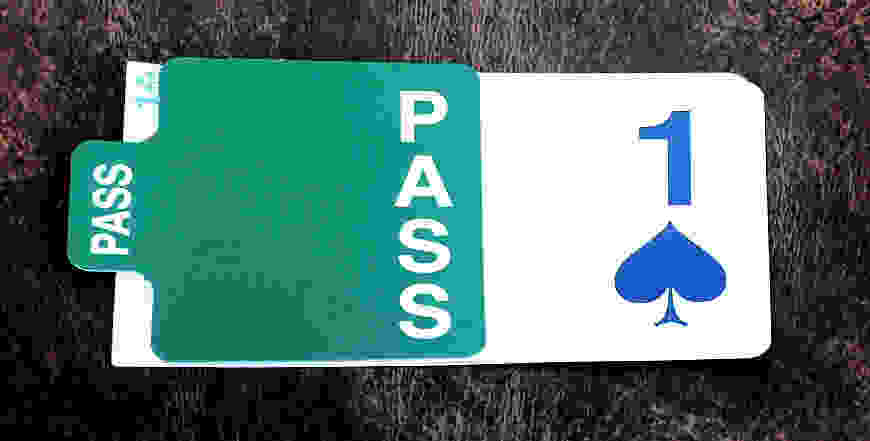 Second and subsequent bids should be stacked
as shown so that all players can see your bids in the order they were
made. Second and subsequent bids should be stacked
as shown so that all players can see your bids in the order they were
made. |
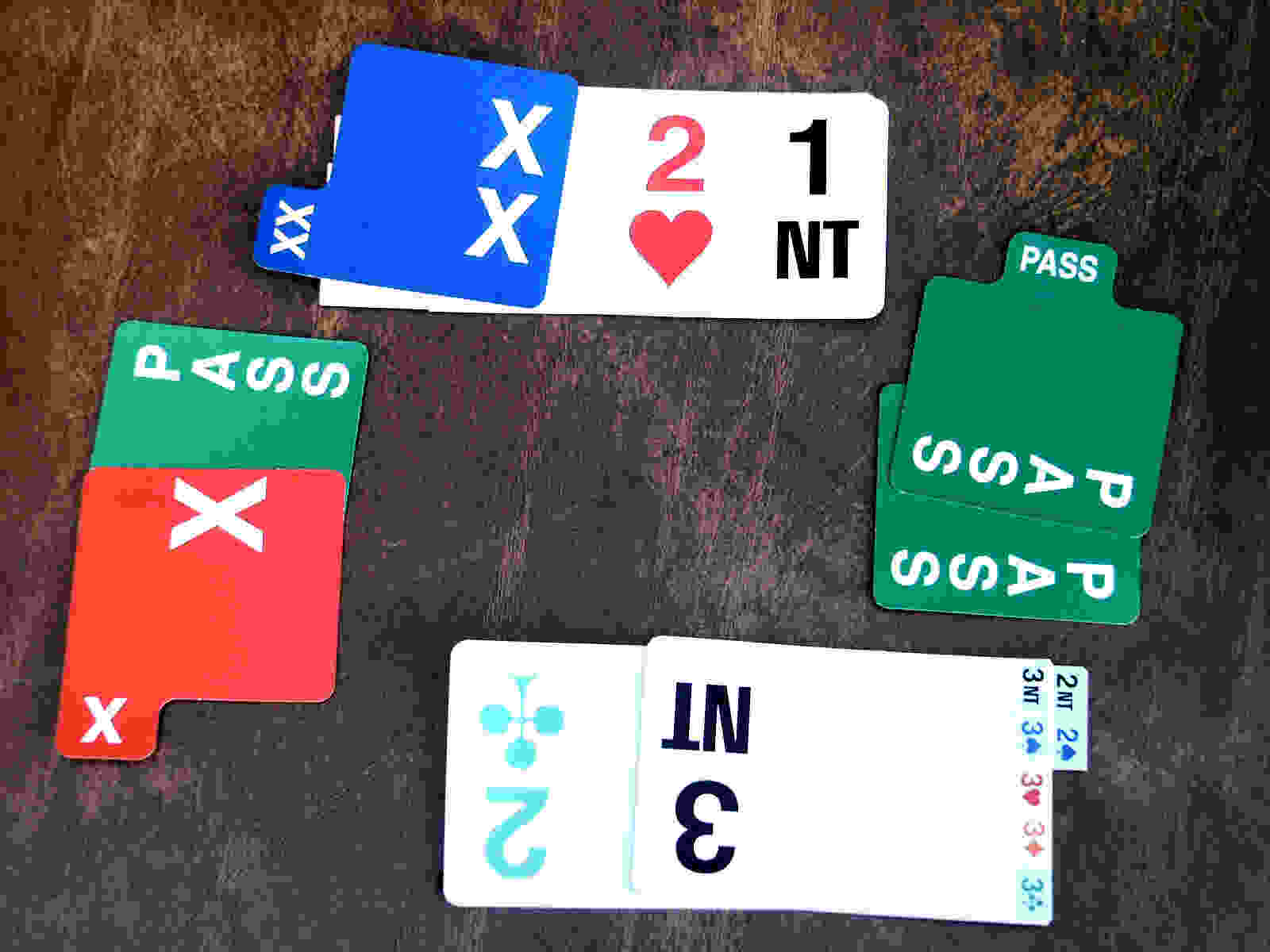 This is what a bidding sequence
looks like after several rounds. The red X card is a double and
the blue XX card is a redouble. This is what a bidding sequence
looks like after several rounds. The red X card is a double and
the blue XX card is a redouble. |
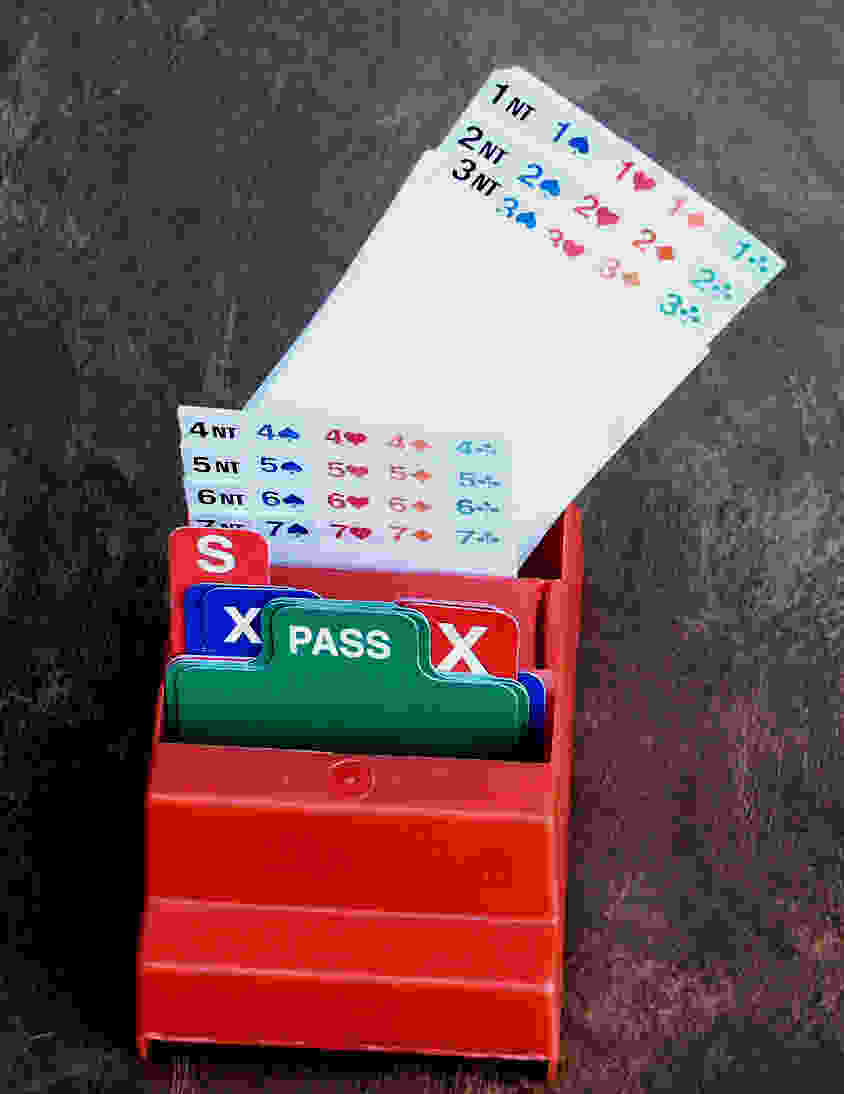 When the auction is over, simply combine all
stacks of cards in front of you and put them back in the back slot as
shown. When the auction is over, simply combine all
stacks of cards in front of you and put them back in the back slot as
shown.Pulling ALL of the bids behind the one you wanted makes putting them back very easy. |
 One of the special cards in the
front slot is the STOP card. The Stop card may be used before making a
jump bid (bidding at a higher level than required to be
sufficient). Using the Stop card is optional, but if you choose
to use it, you must use it every time you make a jump bid. Stop
makes sure that both your partner and opponents know that your bid is a
jump. Once the Stop card is placed on the table, you should leave
it for a few seconds. Your opponent must wait until you replace
the Stop card before they bid. One of the special cards in the
front slot is the STOP card. The Stop card may be used before making a
jump bid (bidding at a higher level than required to be
sufficient). Using the Stop card is optional, but if you choose
to use it, you must use it every time you make a jump bid. Stop
makes sure that both your partner and opponents know that your bid is a
jump. Once the Stop card is placed on the table, you should leave
it for a few seconds. Your opponent must wait until you replace
the Stop card before they bid. |
 The Alert card may be used to fulfill your
obligation to alert the opponents that the bid your partner just made
is unusual enough that the opponents must be warned (these are printed
in red on the ACBL convention card). Many players alert verbally,
but the card may be used. The Alert card may be used to fulfill your
obligation to alert the opponents that the bid your partner just made
is unusual enough that the opponents must be warned (these are printed
in red on the ACBL convention card). Many players alert verbally,
but the card may be used. |
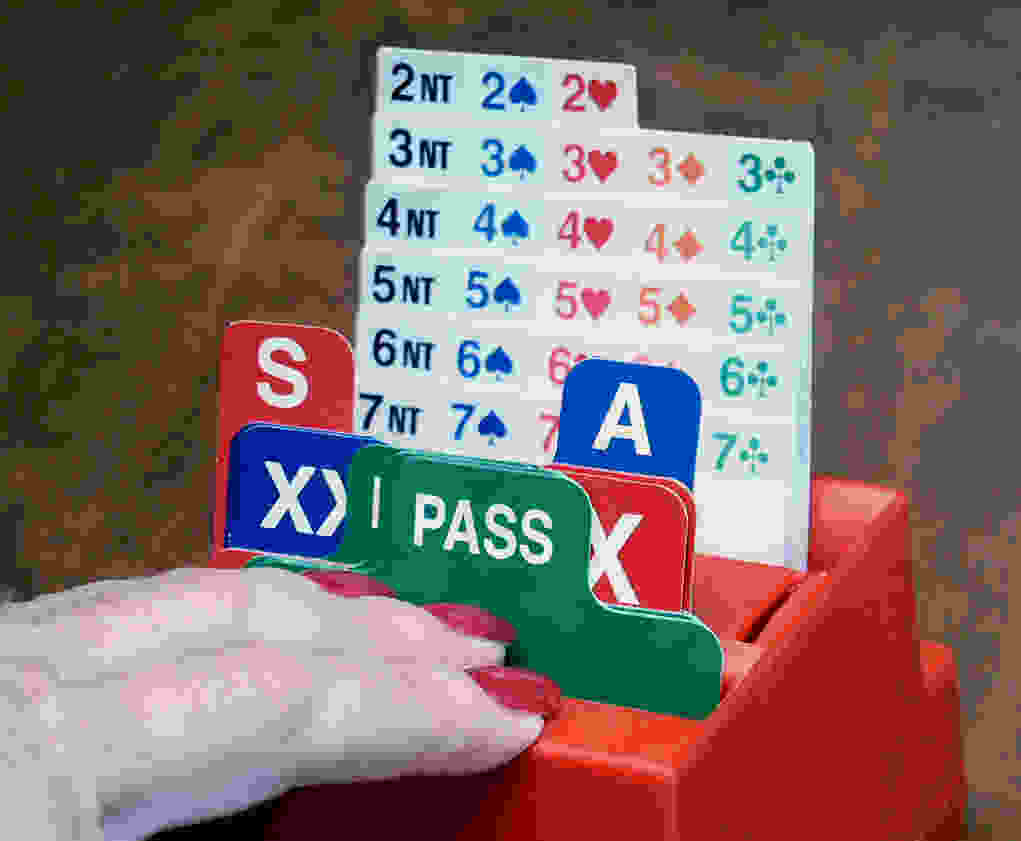 This is a no-no. You should never touch
or reach out your hand to the bidding box until you are ready to choose
a bid. Reaching out and pulling your hand back or reaching for a
Pass and then pulling a bid delivers unauthorized information to your
partner. Make your decision first and then reach for a card. This is a no-no. You should never touch
or reach out your hand to the bidding box until you are ready to choose
a bid. Reaching out and pulling your hand back or reaching for a
Pass and then pulling a bid delivers unauthorized information to your
partner. Make your decision first and then reach for a card. |
If you make a mechanical error with the bidding box (pull out a different bid card than you intended), you are permitted to correct that error up until your partner makes their next bid. If your left hand opponent has bid before you discover the error, you should call the director before correcting your bid. Note that a mechanical error is usually limited to pulling the wrong card from either the front slot (a pass versus a double) OR the rear slot (one bid versus a different bid).